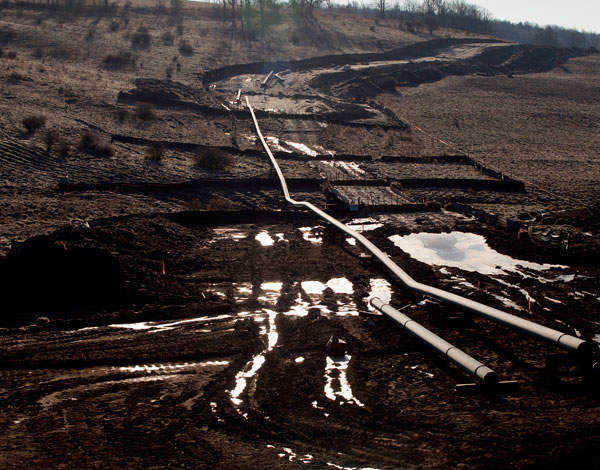

Fracking is a hot topic not just in the world of alternative energy but also for many rural dwellers who are concerned at the impact that fracking may have on their property. Many owners or purchasers of country estates are asking either what rights a third party may have over their land to frack, whether they can do anything to prevent fracking and whether there is a potential windfall to them from the presence of shale rock under their land.
Fracking involves drilling down into the earth and injecting a high-pressure water mixture at the rock to release the gas inside. Geological surveys suggest that there are significant parts of the UK which may have substantial reserves of shale gas.
In terms of ownership of shale gas, all oil and gas in the UK is owned by the Crown regardless of the ownership of the surface of the land. Profits made or royalties which need to be paid by the company extracting the shale gas are not payable to the owner of the land above the rock which is fracked. Therefore, owners of country estates should not expect a windfall from the discovery of shale gas resources under their land.
Many are concerned at the prospect of drilling for shale gas taking place under their land. The question is what, if anything, can be done by a landowner to stop it. The key point is that while you don’t own the gas under your land (as that belongs to the Crown) you do continue to own rights to the land to get at the gas.
Drilling under land owned by a third party to extract shale gas without consent is a trespass. As a result, drilling companies need either consent from the landowner or need to use compulsory purchase powers to gain access rights (which can be time consuming and expensive).
The only fly in the ointment is that should there be a trespass, the compensation payable to a landowner is determined by the loss to the landowner and is not related to the profit that the energy company makes.
Given that fracking often takes place many hundreds of feet below the surface this can lead to very small payouts which do not act as much of a disincentive to trespass. To illustrate, in a recent court case this reduced the compensation payable to the landowner from hundreds of thousands of pounds to a nominal sum.
However, the government has indicated earlier this week that it may look to reform trespass laws to make it easier for drilling companies to extract shale gas. What form these changes may take or whether they will happen at all is currently unclear but if you own a country estate this is certainly a moving target which should be monitored.
Edward Burton is an associate at boutique private wealth law firm Maurice Turnor Gardner LLP (Edward.Burton@mtgllp.com)







